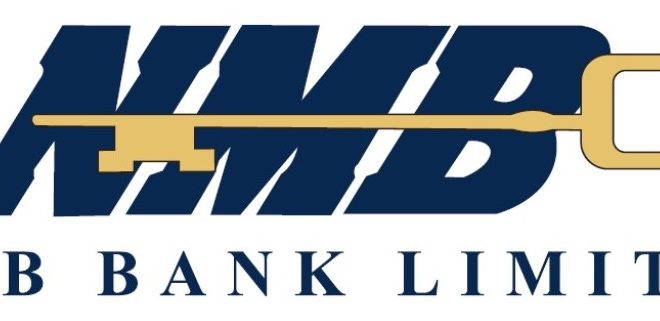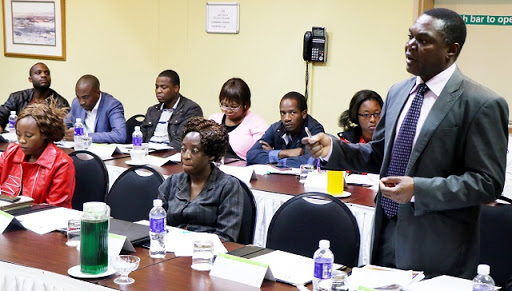Industry calls for more bold reforms
CAPTAINS of industry have called for continued implementation of bold transformative measures to promote production and trade development that helps the country move towards attaining an upper-middle income economy by 2030.
Under the Second Republic led by President Mnangagwa, Zimbabwe is working towards attaining an upper-middle income economy status by 2030.
Through the two-year Transitional Stabilisation Programme (TSP), the country embarked on in October 2018 to December 2020, the Government achieved macro-economic stability.
Riding on such gains, the Government has launched the five-year National Development Strategy 1 (NDS1) expected to anchor the economy from 2021-2025.
It is in the context that during the launch of the Confederation of Zimbabwe Industries (CZI) 2020 manufacturing sector survey results and 2021 economic outlook last week, captains of industry said bold transformative decisions should continue to be implemented if the country is to attain the envisaged macro-economic growth targets.
“We need more and more of the bold transformative measures for us to be able to continue to take industry forward.
“Our infrastructure is delapidated and if we are going to rehabilitate that infrastructure, the steel industry is going to be very key,” said the CZI national vice president and Zimplow managing director, Mr Walter Chigwada.
Zimbabwe’s manufacturing sector capacity utilisation grew 10,6 percent last year to 47 percent with industry targeting 61 percent this year.
Mr Chigwada said bold transformative interventions that would resuscitate operations at the defunct Zimbabwe Iron and Steel Company ( Zisco) were a must.
“We need to rebuild our infrastructure which includes roads, bridges, dams and many others and we cannot continue to do it with imported steel. We have to leverage on import substitution and be able to get raw materials locally,” said Mr Chigwada.
Zisco ceased operations at the height of inflation in 2008 leaving more than 5 000 workers jobless while thousands others were affected downstream as industry either scaled-down or closed operations.
Mr Chigwada said as industry they were also waiting to hear from the Government regarding the policy direction concerning the 4th Industrial Revolution as this would assist local industry to be competitive through retooling and installing state of the art technology.
Speaking at the same occasion, CZI immediate past president Mr Sifelani Jabangwe said the manufacturing sector, despite the Covid-19 pandemic, managed to increase capacity utilisation to 47 percent last year from 36,4 percent in 2019.
Mr Sifelani Jabangwe
The positive growth trajectory in capacity utilisation was attributed to the efficacy of the local content policy.
“Local content was supported by Covid-19, which forced buyers to look internally for raw materials from local suppliers and this has helped the economy to grow capacity utilisation.
“We now need to develop implementative frameworks and models that will ensure local enterprises benefit from the bold transformative measures,” he said.
“Local content will also reduce pressure on foreign currency requirements. The key issue is to ensure we support the local content policy.”
CZI past president and Bulawayo-based manufacturing concern, United Refineries Limited chief executive officer, Mr Busisa Moyo, said continued macro-economic stability was key to attainment of the NDS1 and the subsequent upper middle-income economy.
He said industry needs to continue advocating for macro-economic stability highlighting that an anchor to that was the forex auction trading system.
Mr Busisa Moyo
Mr Moyo said a vital cog was to move the auction platform towards market-based so that it becomes sustainable and attract more players.
“I think something needs to be done in order to bring confidence in the rate that’s at the auction system so that we see more players participating at the auction system,” he said.
Mr Moyo expressed optimism that the Government will continue to deal with “overt and unpredictable” corruption that has over the years continued to decimate economic growth and development efforts.
“We hope that overt and unpredictable corruption will continue to be worked on and taken care of so that it doesn’t desolate this stability (macro-economic) that we are seeing now,” he said.
Mr Moyo said protection without structured development would always be a challenge and thus programming of value chain systems is imperative to promote competitiveness.
“Financing that is focused on industry is critical. Industry is a bit peculiar but not special. We need financing that is structured for retooling. For example, if l borrow money from the bank today, I can’t start paying next month for the machinery because it takes about six months to bring it into the country,” he said.-herald.cl.zw










